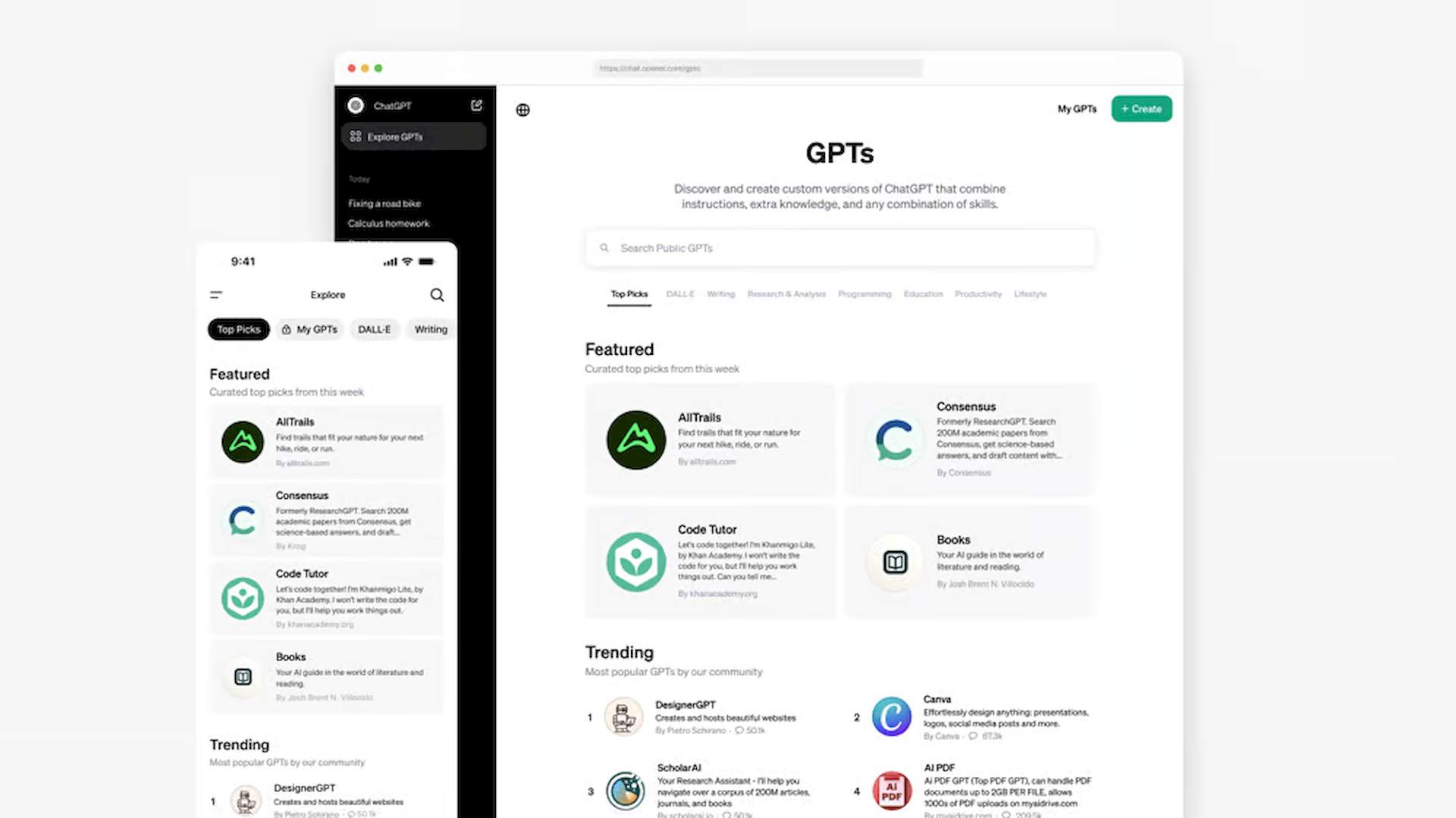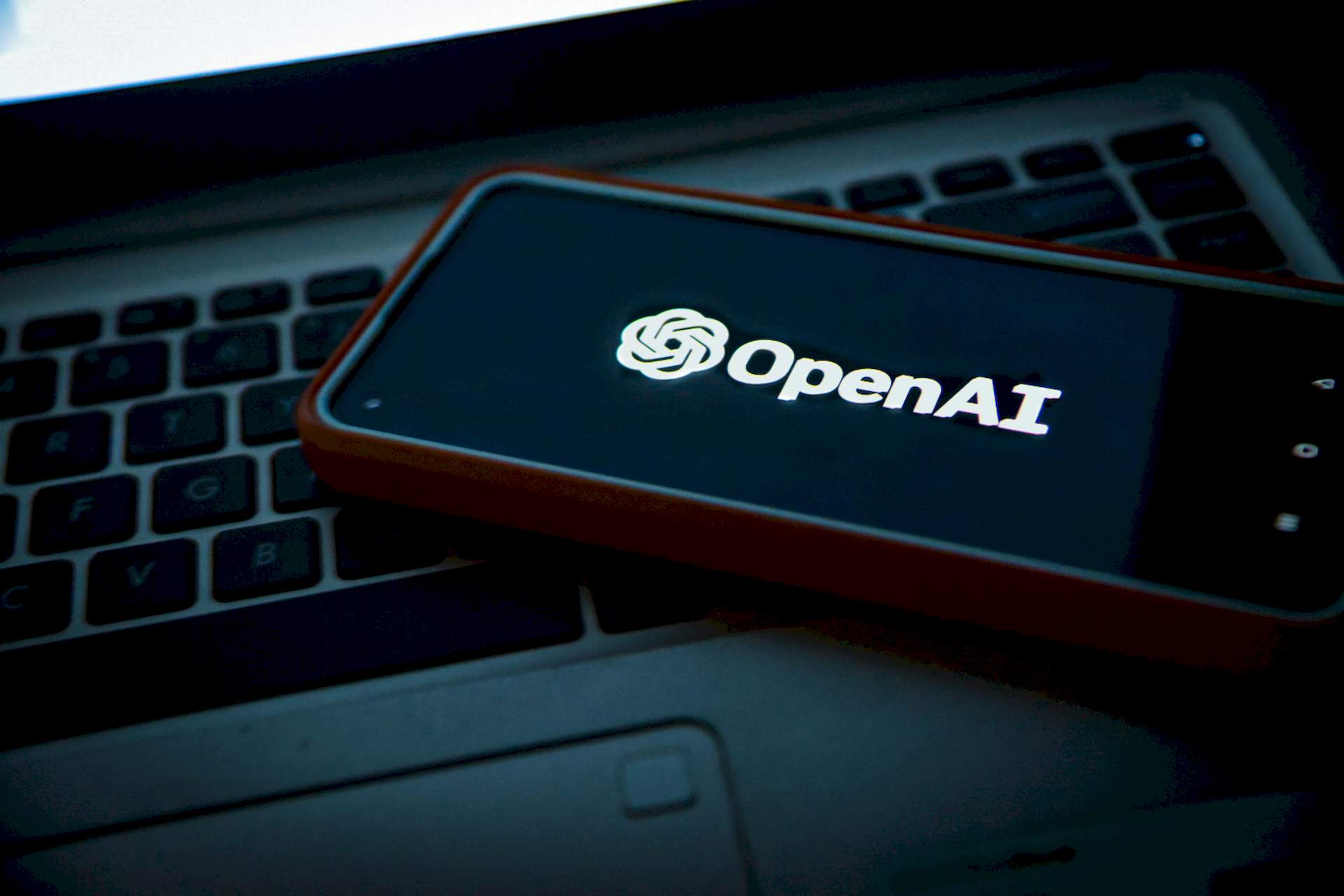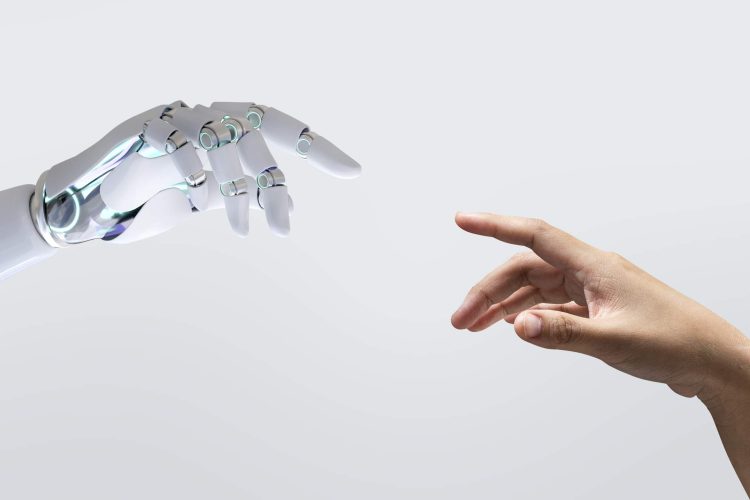The highly anticipated day has finally arrived – the launch of the GPT Store, OpenAI’s revolutionary marketplace for personalized AI tools, driven by the success of their renowned chatbot, ChatGPT.
In a world dominated by virtual assistants like Siri and Alexa, OpenAI introduces a customizable future of AI assistance, providing users with a DIY playground to craft their own AI companions tailored to specific needs and desires.
The GPT Store rollout includes accessibility for ChatGPT Plus and Enterprise users, as well as a new subscription tier called Team, amplifying the platform’s reach and impact.

Meet GPT Store: The marketplace for custom AI tools
The GPT Store, unveiled by OpenAI, serves as an online platform where users can not only create but also share and access custom-built AI tools. Powered by OpenAI’s advanced GPT-3 and GPT-4 language models, it stands as a unique marketplace for personalized AI assistants, enabling users to construct their mini-ChatGPTs tailored to individual preferences.
A distinctive feature of the GPT Store lies in its capacity for customization. Users can train their GPTs on specific data sets and instructions, molding them to perform precise tasks or align with unique preferences. Whether one desires a recipe recommender trained on cookbooks or a coding companion fed with code examples and tutorials, the GPT Store opens doors to endless possibilities. Remarkably, no coding experience is required, as the platform offers an intuitive interface for building personalized GPTs.
After crafting a GPT, users can contribute to the collaborative spirit of the GPT Store by sharing their creations with the community. This fosters innovation as others can explore, borrow, and even build upon existing GPTs. A leaderboard showcases trending and popular GPTs, allowing users to discover new and exciting tools created by the community.
The potential applications of custom GPTs span a wide range – from personalized learning assistants and customer service chatbots to creative writing companions and even tools for musical composition. The GPT Store empowers users to build AI tools that cater specifically to their needs, offering a level of personalization not seen before.
OpenAI’s commitment to ethical considerations is evident in the platform’s safeguards against misuse. All GPTs undergo a rigorous review process before entering the store, ensuring compliance with ethical guidelines and preventing the harboring of harmful biases.

What does GPT stand for anyway?
GPT, or Generative Pre-trained Transformer, stands as a significant breakthrough in artificial intelligence models. Developed by OpenAI, GPTs have gained widespread attention due to their impressive capabilities and versatility across various applications. These neural networks are trained on extensive datasets, allowing them to discern patterns and relationships that would be challenging for humans to identify.
At its core, GPTs exhibit the ability to be fine-tuned for specific tasks, making them highly adaptable tools for a myriad of applications. For instance, a GPT trained on medical images can be fine-tuned to diagnose different diseases or identify potential health risks. With the GPT Store in place, this advanced technology becomes accessible to everyone, enabling the creation of custom GPTs without requiring any coding knowledge.
How to build your own AI companion at GPT Store
While the GPT Store offers exciting possibilities, navigating it may seem daunting at first. Users can explore existing GPTs by browsing the store, using the search bar, or exploring categories such as education, productivity, and entertainment. This provides inspiration and ideas for creating personalized GPTs.
Building a GPT involves a straightforward process. Users can click “Create GPT” to initiate the process, providing a name and description for their creation. The training mode selection includes options like “Continue Training,” allowing users to upload their data, and “Fine tune on OpenAI API,” utilizing OpenAI’s pre-trained datasets.
Once the GPT is built, users can test it in the sandbox, asking questions and assigning tasks to analyze its responses. The iterative training process allows for experimentation and refinement until the desired outcomes are achieved. Users can then share their GPT with the community on the GPT Store, contributing to the collaborative environment.

GPT Store can be a great second income source
While the precise earnings from the GPT Store remain uncertain in its early stages, factors such as the pricing model, popularity of custom GPTs, and user demand will play pivotal roles. OpenAI has yet to officially announce the pricing model, which could include subscription fees, a pay-per-use model, or other options, directly impacting the earnings potential for users.
The popularity and demand for custom GPTs will be a significant driver of earnings. If a custom GPT proves valuable and addresses specific problems for a particular audience, it can attract a substantial user base, generating significant revenue. However, users should be mindful of the option for others to borrow GPTs for free, which might limit income potential for widely-used creations.
While individual earnings are challenging to predict, the GPT Store offers promising income potential for creators building popular and useful custom GPTs. As the platform evolves, staying informed about updates and adjusting strategies will be crucial for success.
Featured image credit: rawpixel.com/Freepik.





